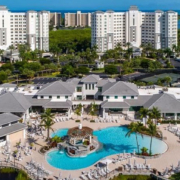The Special Legislative Insurance Session is over-Highlights of some of the new law passes that should help reign in increases
Our new Governor called the special 2007 session, the Legislatures meet and approved a comprehensive and complicated package of new laws designed to stop the out of control increases in property insurance that every Floridian has been suffering under lately. Whether it is enough is yet to be seen when the new laws are implemented at various start times this year. It is instructive, however, to point out some of the more non-complicated provisions of the new laws that may have a quick effect in stopping the insurance rate bleeding.
1. Insurers will be able to procure additional reinsurance coverage from the Florida Hurricane Catastrophe Fund under a temporary emergency program applicable to the 2007, 2008 and 2009 seasons.
2. For the State run Citizens Property Corporation, rate increases that were approved for 2007 were resended and frozen at 2006 levels through 2007 and the requirement that Citizens rates be non-competitive and no lower than the top 20 insurers was removed.
3. A Commercial self-insurance fund can now be formed by a not-for-profit group comprises of one or more community associations responsible for operating at least 50 residential parcels or units including Condominium, Cooperative and/or Homeowner Associations. The group must be organized and maintained for the purpose of pooling and spreading the liabilities of its group members relating to property or casualty risk or surety.
4. If a group of no fewer than three of these communities is formed, it can obtain windstorm insurance coverage if the insurance coverage is sufficient to cover an amount equal to the probable maximum loss for the communities for a 250-year windstorm event.
5. By July 1, 2007, property insurers must provide a premium payment plan option to their policyholders which allows for quarterly and semi-annual payment of premiums.
6. An insurer must give at least 100 day’s written notice, or written notice by June 1, whichever is earlier, for any nonrenewal, cancellation, or termination that would be effective between June 1 and November 30.
7. By a certain formula, a residential property insurer must return all excess profits to policyholders except as otherwise directed by the Office of Insurance Regulation.
8. Within 90 days after an insurer receives notice of a claim from the policyholder, the insurer must pay or deny such claim.
9. For personal lines residential property insurance covering property valued at less than $500,000, a policyholder can choose a hurricane deductible in excess of 10 percent of the policy dwelling limits assuming the mortgage holder on the property agrees.
10. For residential property insurance, a policy holder can choose to not have hurricane or windstorm coverage on their home or condominium unit assuming the mortgage holder on the home or unit agrees.
11. For residential property insurance, except for condominium unit insurance, an insurer must make available, at the option of the policyholder, an exclusion of coverage for the contents.
12. For policy rate transparency, every notice of policy renewal premium must specify the dollar amounts recouped for assessments by the Florida Hurricane Catastrophe Fund, the Citizens Property Insurance Corporation, and the Florida Insurance Guaranty Association. In addition the notice must specify the dollar amount of any premium increase that is due to a rate increase and the dollar amounts that are due to coverage changes.
13. Last, to stop the cherry picking by some large insurance carriers, starting January 1, 2008, no insurer writing private passenger automobile insurance in this state may continue to write such insurance if the insurer writes homeowners’ insurance in another state but not in Florida unless the insurer writing private passenger automobile insurance in this state is affiliated with an insurer writing homeowners’ insurance in Florida.
It will be interesting to see, how effective these changes will be to the bottom line premium payments the good citizens of Florida must reach deep down into their pockets to come up with each year as well as whom within the State may start the ball rolling to implement group community association self insurance for the possibility of obtaining additional significant premium savings.

